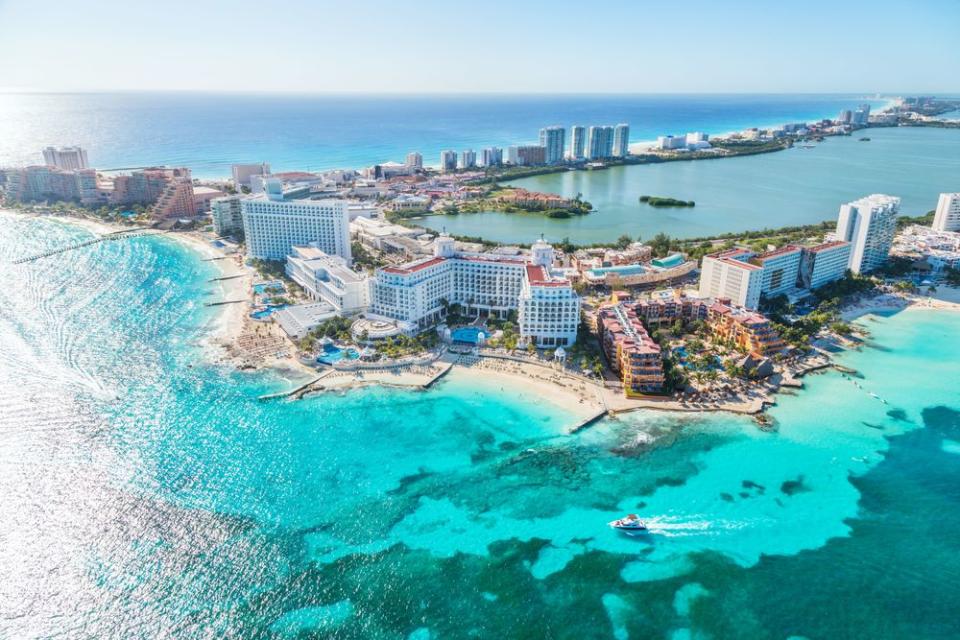This Coral Reef Is About to Become the First in the World With Its Own Insurance Policy
Think of the last time you went on vacation, strapped on a snorkeling mask, and dove deep into the briny blue for a glimpse of one of nature’s most spectacular sights: the rich and diverse ecosystem of a coral reef. Your memories from the afternoon (or night) are, no doubt, priceless.
The nature that made those experiences possible, however, could use a kickback. According to the International Coral Reef Initiative, reefs are under threat globally from long-term issues (such as bleaching) to short-lived disasters with long-term implications (e.g., hurricanes).
For the latter, there’s a plan—and it could be game-changing for all of Mother Nature’s assets. The Nature Conservancy, in partnership with the State Government of Quintana Roo, Mexico (home to tourism hot spots like Cancun and Playa del Carmen, which border a portion of the Mesoamerican Reef), has created a first-of-its-kind system that will protect the reef the way all assets are traditionally protected: with insurance.
Related: Meet Our 2017 Ocean Heroes:
The unique policy will mark the first time a slice of the environment has ever been insured—a tricky undertaking when it comes to monetizing the value of a coral reef’s benefits. Not only do the biologically diverse habitats lure tourists and tourism dollars with their beauty, they also provide a necessary buffer for coastal communities from high-powered storms.
According to the Nature Conservancy, a healthy coral reef can reduce up to 97 percent of wave energy that causes coastal destruction and beach erosion. Yet, during a Category 4 or 5 hurricane, 20 to 60 percent of live coral cover can be lost, putting valuable coastlines at great risk should another storm hit.
“There are [immediate] actions that can be taken to reduce the damage to reefs caused by hurricanes, such as cleaning and consolidating broken colonies and collecting coral fragments for future replanting, which can all reduce coral mortality,” says Mark Way, The Nature Conservancy’s Global Coastal Risk & Resilience Director. “These actions are not currently implemented, however, because of a lack of funding. Given that hurricanes are an insurable risk, buying an insurance to have the funding to restore the reefs after a storm is an important conservation action.”

The policy, funded by local resorts and businesses along the coast in Quintana Roo, is a parametric one, designed to kick in quickly should the region be hit with a major hurricane. Taxes from the tourism industry will be collected into the Coastal Zone Management Trust fund, which will be used to purchase the policy as well as fund ongoing conservation.
The policy, which is expected to go into effect soon, is already being looked at around the world as a model for a smart, viable way to protect the planet’s natural assets—coral reefs and beyond.
“There is already a lot of interest among reef managers and beneficiaries of reefs´ environmental services in seeing a similar policy put in place in other parts of Mexico and around the world,” says Way. “In theory, the concept can also be applied to mangroves, dunes, beaches, or forests … natural features that provide a valuable service to people and/or businesses, and that are also at risk from hurricanes and other risks such as grounding, fires, or oil spills.”


